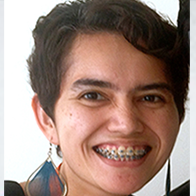At the forum “The World Economy in 2016” held at Sunway University, I raised a question to the two speakers, Professors Woo Wing Thye and Kuan Chung-Ming on whether we will see a widening gap of inequality in the Southeast Asian region post-TPPA and their recommendations to reduce this gap.
 Their replies were expected, and Kuan even said realistically that we would never see the eradication of inequality.
Their replies were expected, and Kuan even said realistically that we would never see the eradication of inequality.
To bring home this point, I was unexpectedly approached over the weekend by an elderly uncle who asked if I could do him the favour of buying him dinner, as he could not afford it and was very hungry.
From our short conversation over dinner, I found out that he is no longer employed because he was over 60 years old and he had used his Employees Provident Fund savings to pay for his house. He is currently unemployed and without a pension. This happened in an affluent neighbourhood in town.
The economy is at the forefront of our concerns. A Merdeka Center poll showed that among the 4,352 Malaysians surveyed, 52% stated that the country is heading in the wrong direction in economics, compared with politics (12%) and race/religion (merely 4%).
Further, I think it goes without question that the economy affects all other aspects of our lives. Woo, in his reply to me, even hypothesised that the increasing radicalisation and possible cause of recent terror attacks in France could have originated from the economic dissatisfaction in the French ghettos, which are predominantly Muslims.
I agree and would add that it is a sad day when governments decide to push forth race and religious agendas rather than doing whatever they can to govern a nation towards economic prosperity and reducing inequality between the social classes.
I also finished reading Muhammad Abdul Khalid’s book, The Colour of Inequality (my review on goodreads here).
What is refreshing about the book was the ability for me to read something about the Malay agenda that is not teemed with sentiments and hatred.
It is a centred, data-backed document, and one that should serve as a wake-up call to most Malaysians. Especially today, where we all struggle with rising costs of living, the uncertainty of the repercussions over free-trade agreements and dropping oil prices, our stagnant wages or worse, being laid off from our jobs.
I summarise here the recommendations from the book to narrow the inequality gap:
For the government and relevant bodies to address directly the institutional disadvantage that limits the ability of Bumiputeras to advance in the private labour market and thus access wealth generation and accumulation.
Anti-discrimination laws should also be in place to promote equal employment opportunity, regardless of class and ethnicity.
There is a need to promote asset acquisitions among those at the bottom of the social structure who have been locked out of the wealth accumulation process, regardless of race.
I applaud Khalid’s idea for BR1M (1Malaysia People’s Aid) handouts to be used instead as a seed investment in a “locked fund” through individual development accounts to finance home ownership and higher education.
This would facilitate savings and accumulation of assets for low-income families and the poor who usually fall outside of traditional asset-building opportunities.
Address the massive concentration of wealth held by the richest Malaysians through reforming the tax structure as the current policy provides income maintenance for the poor, while for non-poor, tax and fiscal measures facilitate acquisition of wealth.
I would also add the need to take into account the implementation of the goods and services tax (GST) and its affects to the diminishing middle-class.
Khalid’s book also suggested a policy change for higher education where entrance requirements and funding should be based on meritocracy.
His argument is that the current merit-based policy is unfair to the poor and rural students lacking infrastructure and constrained by family economic limitations.
I disagree with Khalid on this point. I would suggest that we strengthen primary education instead, based on allocating more funding to rural schools, incentivise qualified teachers for rural placements and the training of teachers to include assimilation and respecting local cultures in the case of Orang Asli and Bumiputeras in Sabah and Sarawak.
Increase the quota for rural students in inclusion to boarding schools for secondary education and strengthen vocational and technical schools.
I would also suggest a subject on financial management be made compulsory at the secondary/tertiary level, lest we have more elderly folk who could no longer afford dinner due to lack of pensions.
Khalid also recommended the reintroduction of affirmative-type policies while addressing other supplementary changes to social, transport, and housing policies.
At the above forum, Kuan also mentioned the need to focus on affordable housing as a measure to reduce inequality.
We Malaysians have got our priorities right in thinking that the economy is and should be our biggest concern. We must continue to push for good governance and a mature political democracy to ensure implementation of better policies.
After all, this would affect our lives. – January 20, 2016.
* This is the personal opinion of the writer or publication and does not necessarily represent the views of The Malaysian Insider.


Comments
Please refrain from nicknames or comments of a racist, sexist, personal, vulgar or derogatory nature, or you may risk being blocked from commenting in our website. We encourage commenters to use their real names as their username. As comments are moderated, they may not appear immediately or even on the same day you posted them. We also reserve the right to delete off-topic comments